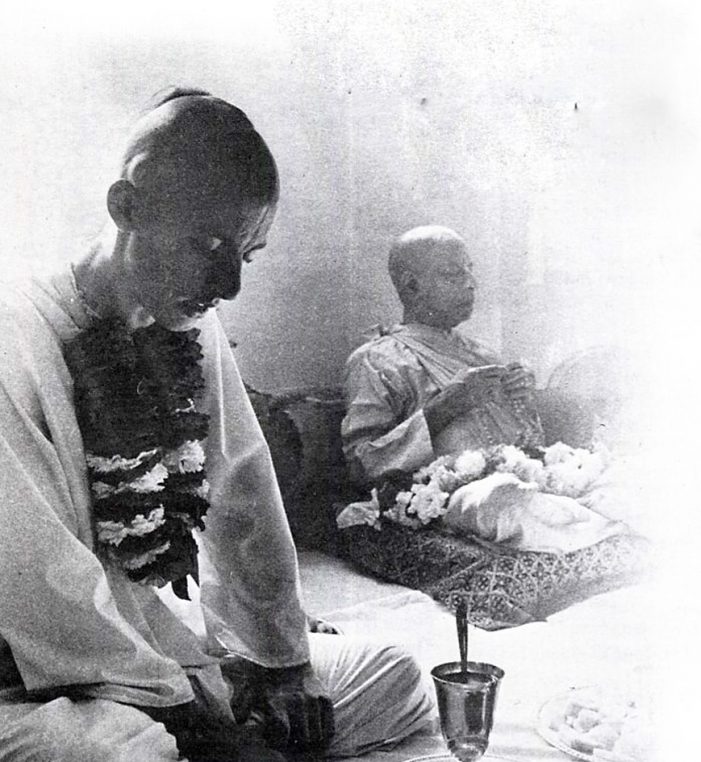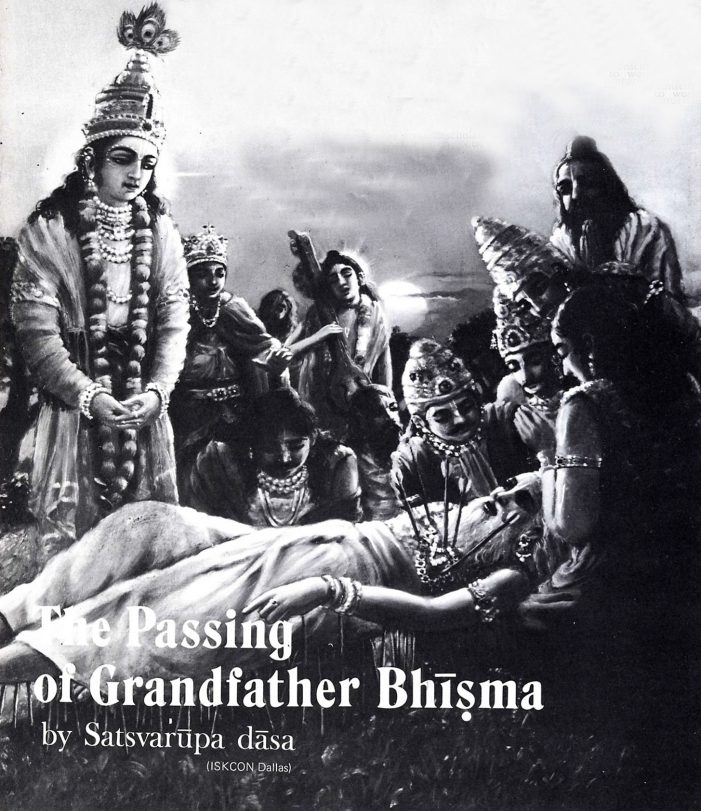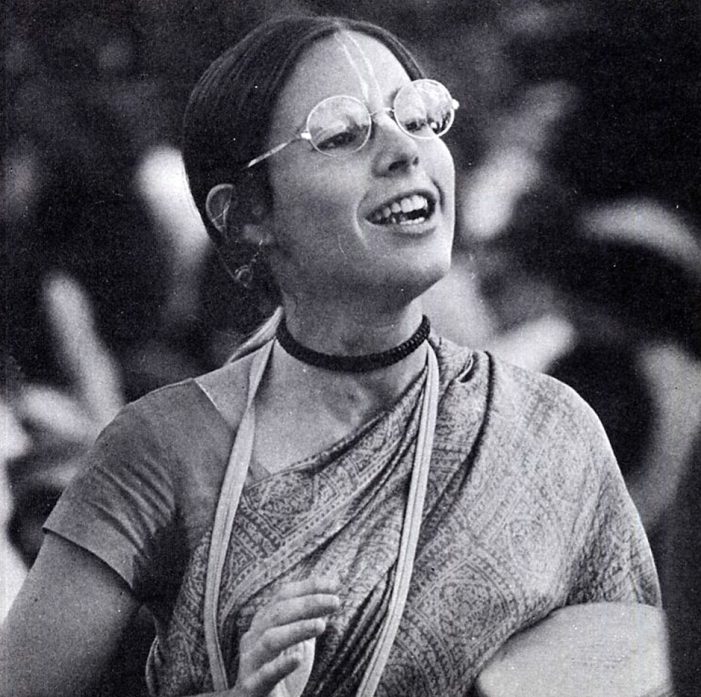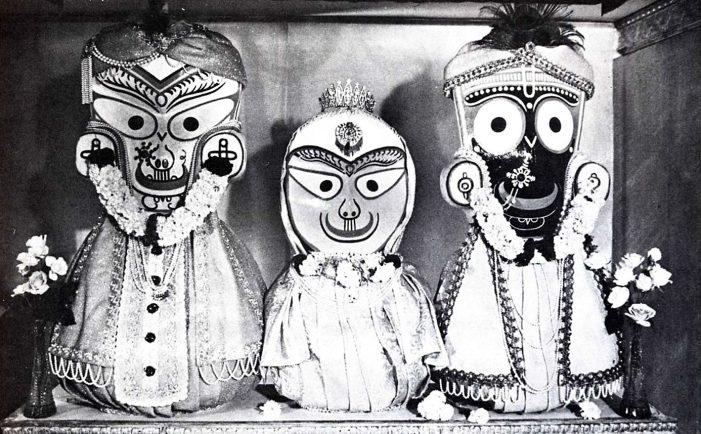Initiation, Second Birth

I want to talk of the real guide, the pure devotee of God who showers unlimited love and mercy upon all living entities because he is the dearmost representative of God.
By Satsvarupa dasa Gosvami on ~Featured~, Guru / Initiation

I want to talk of the real guide, the pure devotee of God who showers unlimited love and mercy upon all living entities because he is the dearmost representative of God.
By Satsvarupa dasa Gosvami on Devotees

Grandfather Bhisma was lying at the point of death on a bed of arrows which had been shot through his body. Because he was the most famous warrior of his time and an expert yogi, all the great men of the universe went to the Battlefield of Kuruksetra where he lay dying.
By Satsvarupa dasa Gosvami on Society
The word doomsday appears so often and in so many different political, military, and religious contexts that the topic has come to puzzle many people.
By Satsvarupa dasa Gosvami on Devotees
Krsna consciousness not only allows for love but is constituted of nothing but love. In fact, by practicing Krsna consciousness, one gradually comes to realize that supreme love which permeates all beings and objects throughout the universe.
By Satsvarupa dasa Gosvami on Preaching

Even if one has achieved great success in business, or has amassed great wealth, a nice family, fame, or any amount of worldly or mystical power, still dissatisfaction at the inner core of one’s being is liable to occur.
By Satsvarupa dasa Gosvami on Society
In the 1960s terms like yoga, karma, and mantra entered the American language. The rock ‘n’ roll culture of the hippies also popularized terms of Vedic spirituality, simultaneously creating new misconceptions.
By Satsvarupa dasa Gosvami on Varnasrama
The four orders of social life called varna are scientifically arranged for the material progress of society, and the four spiritual orders called asrama are designed for natural progress in self-realization.
By Satsvarupa dasa Gosvami on Back to Godhead, Yoga
In Karma yoga, when you are working for Krishna, you can do your office tasks, speak to people on business, and do whatever you duty happens to be, for it all becomes part of your single aim: to return to God.
By Satsvarupa dasa Gosvami on ~Featured~, Yoga
Kardama Muni practiced meditative penances on the bank of the Sarasvati River for a period of 10,000 years. It is understood that the yoga system, in order to be rightly practiced, must be performed by persons who possess a very long duration of life.
By Satsvarupa dasa Gosvami on Society
While writing this month’s column, I am confined with an illness that has stopped my normal work. It’s a discouraging, uncomfortable interlude, yet I am seeing how illness can also bring one valuable realizations.
By Satsvarupa dasa Gosvami on Government & Politics
The election year has ended, but the debates continue. And one of the most controversial issues is the role of religion in government. The Hare Krsna movement takes no side in the political battle, but it can offer thoughtful advice to help solve a complex problem.
By Satsvarupa dasa Gosvami on ~Featured~, Temples

Service of the Lord, especially in dressing and decorating the temple, accompanied by musical kirtana and spiritual instructions from the scriptures, can alone save the common man from the hellish cinema attractions and the rubbish sex-songs broadcast everywhere by radios.
By Satsvarupa dasa Gosvami on Religion
Generally people pray, perform rituals, and so on, in hopes of attaining temporary goals: better health, a good marriage, success in business. But in Bhagavad-gita Sri Krsna advises that those who practice religious life by seeking material boons are missing the real point.
By Satsvarupa dasa Gosvami on Society
Kali-yuga is a fallen age, the age of hypocrisy and quarrel. In Kali-yuga the basic principles of religion are abandoned, the government is ruled by the lowest class of men, and society lives on the basis of animal life.
By Satsvarupa dasa Gosvami on Preaching
In the Vedic literature we find the phrase sastra-caksus, which means “to see with the eyes of scripture.” Scriptures like the Bhagavad-gita teach eternal truths, and these truths can be confirmed in our daily experience.
By Satsvarupa dasa Gosvami on Preaching
The Sanskrit word maya means that which is not. In other words, it is illusion. For example, if a servant of a king thinks that he is the king, that is illusion. Generally, it is the illusion of all human beings that they are the lords of all they survey.
By Satsvarupa dasa Gosvami on Religion
Many conflicts around the world are being billed as “religious wars.” Fighting between the Sikhs and Hindus in India, Christians and Moslems in Beirut, Moslem sects of Iran and Iraq, and Protestants and Catholics of Northern Ireland—all seem to have roots in religious conflict.
By Satsvarupa dasa Gosvami on Devotees
Vidura was filled with compassion by remembering the continual sufferings caused by Dhrtarastra to the Pandava brothers and their mother, Kunti. But at the same time, he was a great court philosopher and a true friend to Dhrtarastra.
By Satsvarupa dasa Gosvami on Philosophy
I have strong evidence to support the fact that there is no happiness in the material world and I have equally strong evidence to prove that any human being can achieve total, lasting happiness in this lifetime.
By Satsvarupa dasa Gosvami on Devotees
Akrura lost all mental equilibrium at the sight of the actual footprints of Sri Krsna, and he jumped out of his chariot and fell onto the ground, shedding tears and crying, “How wonderful it is! How wonderful it is!”—touching his head onto the footprints of the Supreme Lord.
